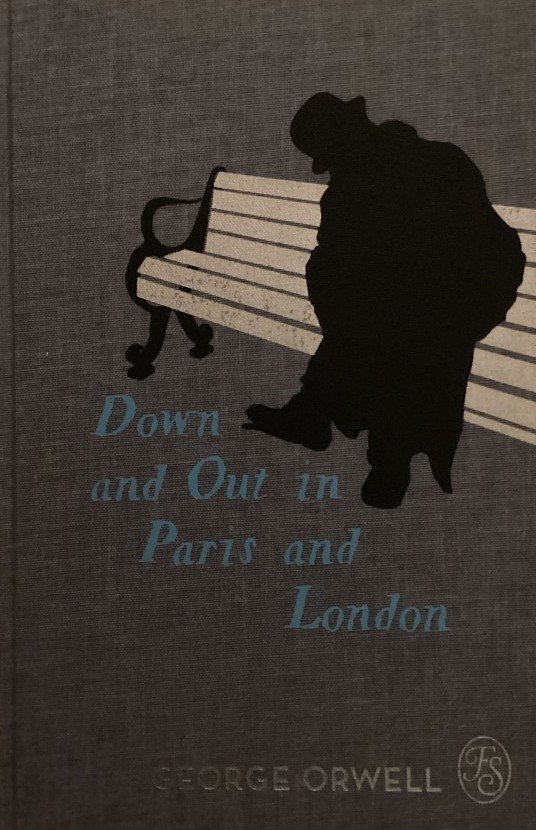Inspiring Older Readers
 posted on 11 Dec 2024
posted on 11 Dec 2024
Down and Out in Paris and London by George Orwell
In 1933, Down and Out in Paris and London was Orwell’s first full-length book and he had quite a struggle to find a publishing firm willing to give him a chance. This debut, in various iterations, was rejected by both Cape and Faber before, eventually, the more politically attuned Victor Gollancz agreed to take it on.
Not quite documentary, not quite autobiography and some part fiction, the book is in many ways an odd hybrid and certainly a book of two halves. I would argue that the first part dealing with his time in the world of Parisian hotel casual labour (originally offered to publishers without the London section) is by far the most vibrant and alive section – full of colour, vigour and very typically Orwellian sensibility. The second section which deals with the on-the-street experiences of tramping in London feels more detached, more documentary and very much less atmospheric.
But it isn’t the stories of the Paris poor or the London down-and-outs that I want to describe here: you can read that for yourselves. What interests me much more, with this his first book, is the way Down and Out shows us the embryonic traits of what I might call Orwell’s ‘voice’ at this early stage in his published career.
Anyone coming to the book for the first time will be struck by the incredible sense of physicality that leaps up off the page. Orwell is, throughout his career, hyper-sensitive to the notion of disgust: smells in particular bother him and the act of picking up anything slimy or dirty, damp and soiled repels him. In the Parisian kitchens all these things are there in abundance and Orwell’s insistence on describing this sense of disgust makes the Parisian episodes especially physical. As I read these passages in Down and Out, I couldn’t help but be reminded of how in 1984, Orwell’s final novel, that notion of disgust is there again when Winston Smith goes to unblock the sink of his neighbour.
Orwell also feels physical discomforts acutely and, combined with an almost over-accentuated fascination for those things calculated to send a shiver down your back, he details an almost constant battle with vermin, lice and bugs of every description that dog the lives of the poor who are unable to wash or change their clothes. This physical degradation is another leit-motif that will reappear in later novels and manifest in the sort of fly-blown shabby world of Gordon Comstock in Keep the Aspidistra Flying.
There’s also a strong sense of decency here too. In Paris he is derided for trying to be honest with hotel owners when, in reality, they expect him to lie and cheat while in London his observation of the rules governing the use of hostels, or ‘spikes’ as they are known, speaks of a man rather lost and living outside the norms of his class. In both Paris and London, he is in effect abroad in two alien worlds, trying to conform to the norms of those places without really knowing the rules. Again, these are themes that will reappear later as Dorothy Hare loses her memory in A Clergyman’s Daughter.
Even though I’d never argue that the book was a complete success, there are plenty of reasons to read Down and Out for its own sake but, if you have a wider interest in Orwell, there’s even more to be got out of seeing the Orwellian persona forming almost in front of your eyes.
You’ll find paperback copies are easy enough to find and you’d expect to pay only a few pounds for a copy on the second-hand market.
Terry Potter
December 2024